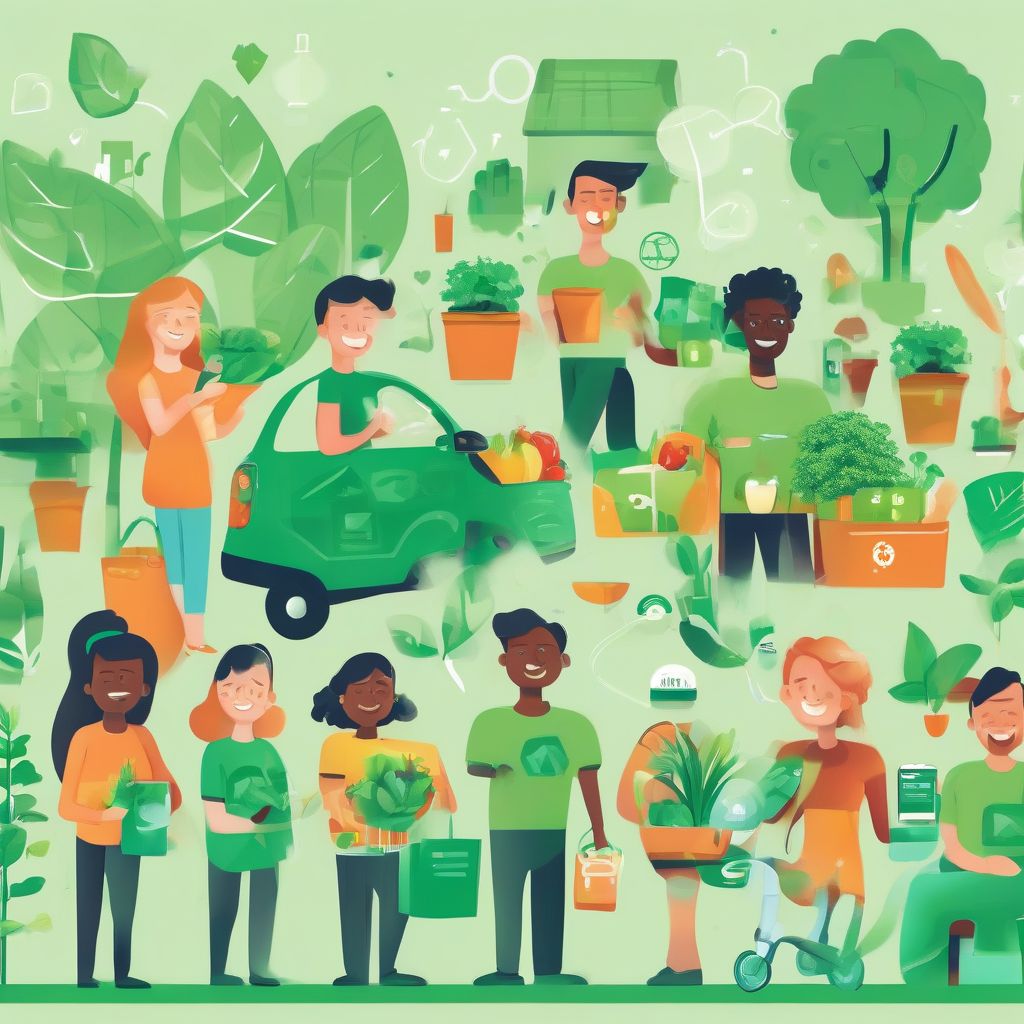Imagine a world where every purchase you make contributes to a healthier planet. This isn’t a utopian dream, but a tangible shift happening right now, driven by green innovations. From electric vehicles to sustainable fashion, these advancements are reshaping our consumption habits and offering a pathway towards a more environmentally conscious lifestyle. But how exactly are these innovations impacting our personal consumption, and what does it mean for the future?
What are Green Innovations?
Green innovations encompass any new product, process, or service that reduces environmental impact. This can include anything from renewable energy sources like solar panels to eco-friendly packaging and sustainable agriculture practices. Essentially, these innovations strive to decouple economic growth from environmental degradation.
Examples of Green Innovations impacting Personal Consumption:
- Plant-based meat alternatives: These innovations are disrupting the food industry, providing consumers with delicious and sustainable protein sources that minimize the environmental footprint associated with traditional animal agriculture.
- Electric Vehicles (EVs): The rise of EVs is transforming personal transportation, offering a cleaner alternative to gasoline-powered cars and reducing reliance on fossil fuels.
- Smart Home Technology: From smart thermostats to energy-efficient appliances, smart home technology empowers consumers to monitor and reduce their energy consumption, minimizing their environmental impact.
- Sustainable Fashion: This movement encourages consumers to choose eco-friendly clothing made from recycled materials or produced with sustainable practices, reducing textile waste and promoting ethical manufacturing.
- Reusable Water Bottles and Coffee Cups: These simple yet effective innovations reduce the consumption of single-use plastics, a major contributor to pollution.
How Green Innovations Influence Consumer Choices
Green innovations are not just about creating eco-friendly products; they are fundamentally changing how we consume. Here’s how:
Increased Awareness and Education:
The proliferation of green innovations has sparked greater public awareness about environmental issues. Consumers are increasingly informed about the impact of their choices and are actively seeking sustainable alternatives.
Shifting Consumer Values:
For many, sustainability is no longer a niche concern but a core value. Consumers are willing to pay a premium for eco-friendly products and support brands committed to environmental responsibility. “Consumers are voting with their wallets,” says leading environmental economist Dr. Emily Carter, “demonstrating a clear preference for products that align with their values.”
Accessibility and Affordability:
As green technologies mature, they become more accessible and affordable. The falling cost of solar panels, for example, has made renewable energy a viable option for many homeowners. Increased competition in the market is also driving down prices and making sustainable products more accessible to a wider range of consumers.
Government Policies and Incentives:
Government policies play a crucial role in promoting green innovations and influencing consumer behavior. Tax credits for renewable energy, for example, can incentivize consumers to adopt sustainable practices. Similarly, regulations on plastic bags can encourage the use of reusable alternatives.
The Future of Green Consumption
The impact of green innovations on personal consumption is only expected to grow in the coming years. As technology advances and consumer demand for sustainable products increases, we can anticipate even more disruptive and transformative innovations.
Emerging Trends:
- Circular Economy: This model focuses on reducing waste and maximizing the lifecycle of products through reuse, repair, and recycling.
- Sharing Economy: Platforms that facilitate the sharing of goods and services, like car sharing or clothing rental, reduce overall consumption and promote resource efficiency.
- Personalized Sustainability Solutions: Technology is enabling personalized recommendations and solutions for reducing environmental impact, tailored to individual consumer needs and preferences.
Challenges and Opportunities
While the future of green consumption is promising, challenges remain. Addressing issues like greenwashing (misleading marketing of products as environmentally friendly) and ensuring equitable access to green innovations are crucial for realizing the full potential of sustainable consumption.
 Impact of Green Innovations on Personal Consumption
Impact of Green Innovations on Personal Consumption
Conclusion
Green innovations are transforming personal consumption in profound ways. By offering sustainable alternatives and raising awareness about environmental issues, these advancements are empowering consumers to make more conscious choices. As we move towards a future where sustainability is the norm, embracing green innovations will be essential for both individual and planetary well-being. What are your thoughts on the role of green innovations in shaping our consumption habits? Share your insights in the comments below, and explore our related articles on sustainable wardrobe choices and tracking your environmental impact (https://greentechinnovations.info/how-to-make-your-wardrobe-more-sustainable-with-tech/ and https://greentechinnovations.info/the-best-apps-for-tracking-your-environmental-impact/) to further your journey towards greener living.



